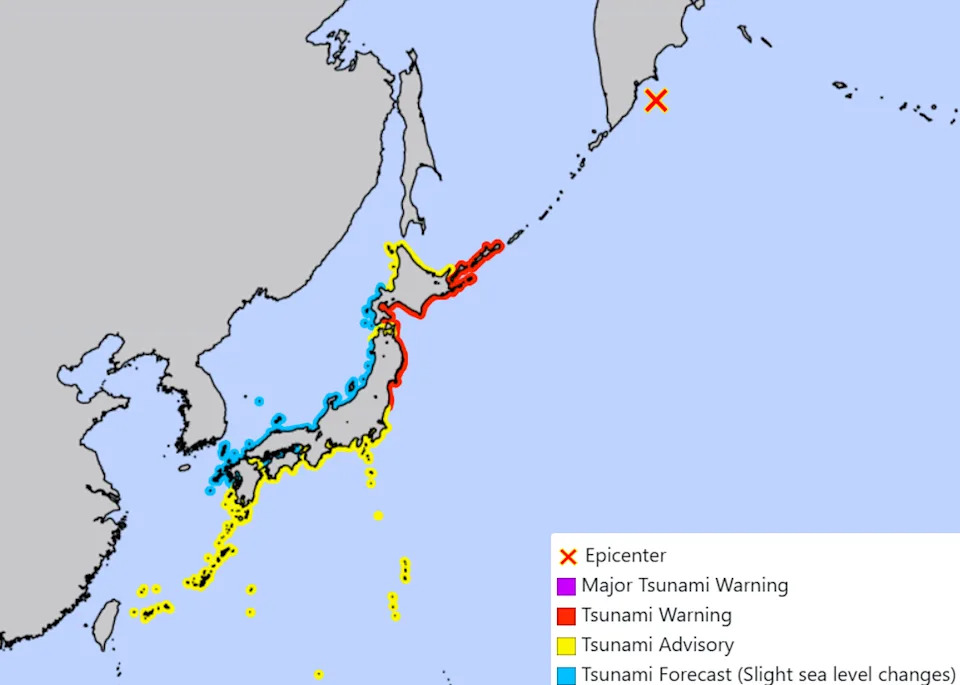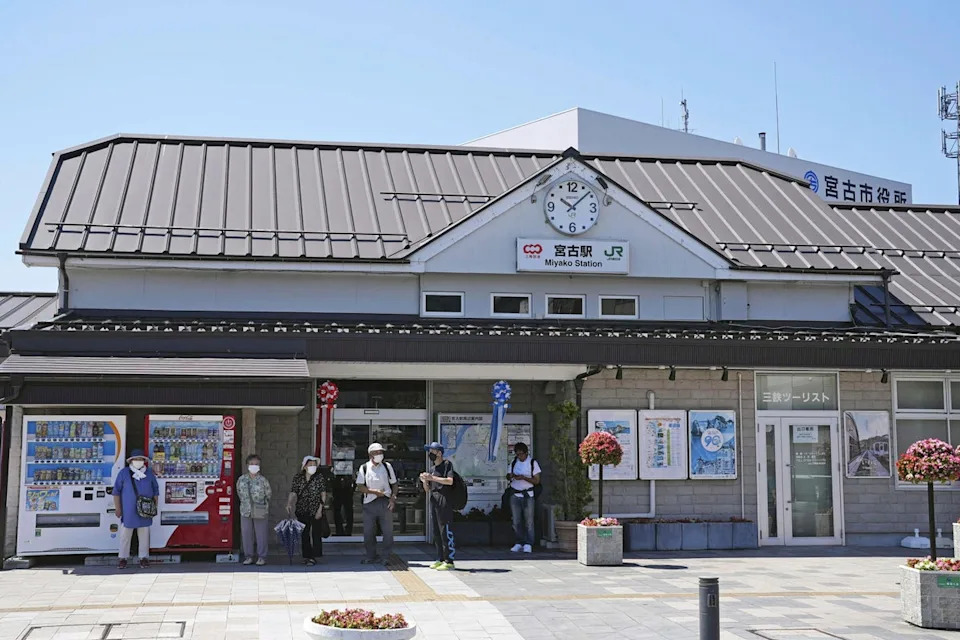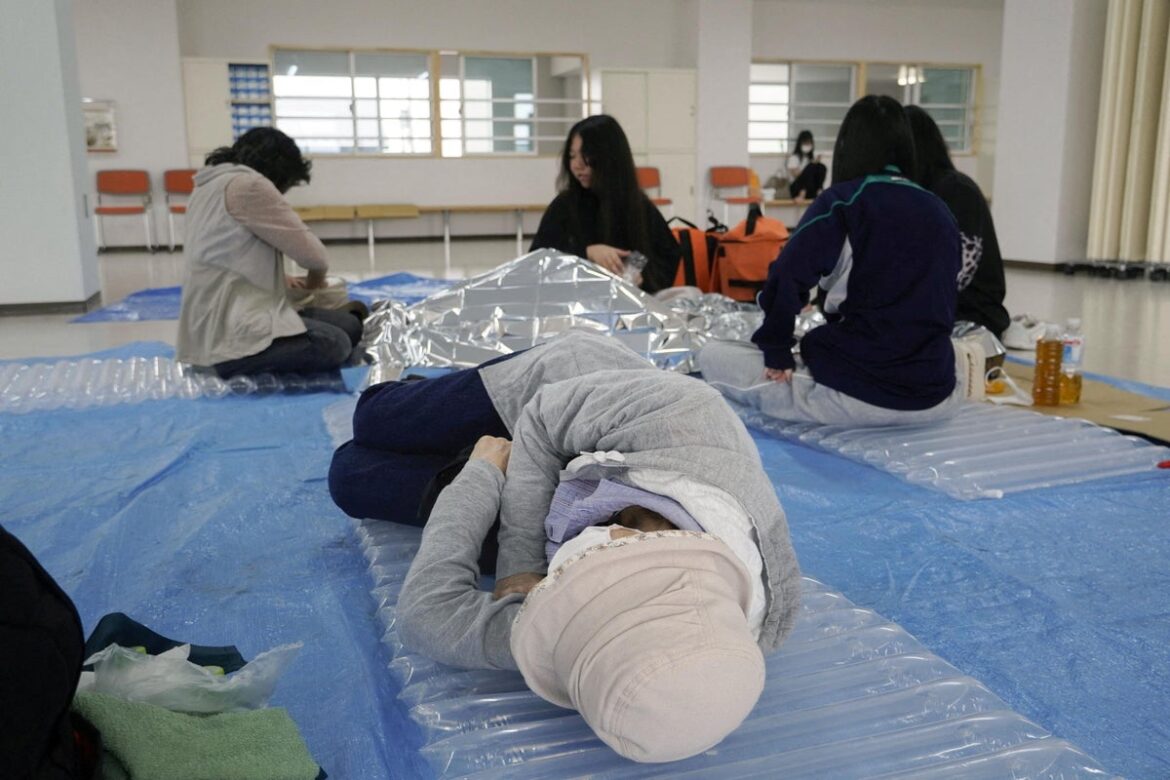Tsunami waves of up to 1.3m have hit areas of Japan’s Pacific coast following a powerful 8.8 magnitude earthquake in eastern Russia.
Almost one million residents were told to evacuate coastal areas ahead of the tsunami’s arrival. Tsunami alerts have been downgraded across the country’s municipalities; however, tsunami advisories are still in place across much of Japan’s eastern coast.
Hawaii, the west coast of the US, and several other Pacific islands have also been placed under tsunami warnings or advisories following the quake, while damage and evacuations have been reported in the Russian regions nearest the epicentre.
Over in Hawaii, waves reaching 5.6ft have been recorded, while California has witnessed a 3.6ft wave breaking on its shoreline.
Here’s what to know if you are travelling in or out of Japan as the tsunami hits the shoreline.
Where is the tsunami reaching?
Tsunami warnings have been issued along the coast of Japan (Japan Meteorological Agency)
A tsunami hit coastal areas of Russia’s Kuril Islands and Japan’s large northern island, Hokkaido, after the earthquake struck early on Wednesday morning (local time).
Tsunami advisories are in place along much of Japan’s coastline, while its western coast has an even lower alert over the risk of slight sea level changes.
“As of 8.45pm on the 30th, a tsunami advisory is in effect. Tsunamis may strike repeatedly. Please do not enter the sea or approach the coast until the advisory is lifted,” the Japan Meteorological Agency said.
Authorities in Japan issued an evacuation advisory to more than two million people across 229 municipalities on Wednesday afternoon local time, NHK reported.
The Japan Meteorological Agency said a first tsunami wave of about 30cm reached Nemuro on the eastern coast of Hokkaido.
A 1.3m tsunami was recorded at Kuji Port in Iwate prefecture, while an 80cm wave was observed at Nemuro, Hokkaido. High waves have also been reported in other areas along the coast.
The earthquake is one of the strongest ever recorded, leaving several people injured in Russia, according to authorities, and at least one person injured in Japan.
What is the UK government advice?
The Foreign, Commonwealth & Development Office (FCDO) has asked British travellers in Japan to follow the guidance of local authorities amid tsunami alerts.
“Following the magnitude 8.8 earthquake off of the eastern coast of Russia, the Japanese Meteorological Agency has issued tsunami warnings of up to three meters along Japan’s Pacific coast from Hokkaido to Wakayama,” the FCDO said.
“Please follow the advice of local authorities. For further information in English, please access the NHK website.”
Are flights still running to and from Japan?
Sendai International Airport, which sits on the Pacific coast, said in a recent update: “Due to the issuance of a tsunami warning, all runways have been closed, and both domestic and international flights have been cancelled for the entire day.
“Passengers using aircraft are requested to check the latest flight information on the airline’s website or other sources.”

Some local train operations have been suspended or delayed (AP)
Some local train operations have also been suspended or delayed, while ferries connecting Hokkaido and Aomori on the northern tip of Japan’s Honshu island were suspended, as well as those connecting Tokyo and nearby islands.
Can I cancel my holiday?
As the Foreign Office has not warned against non-essential travel to Japan, there will be no special circumstances in place to be able to cancel a trip for a full refund.
The conditions for cancelling your trip will be dependent on your holiday provider, so it’s best to contact them if you’re looking to postpone.
There is no obligation for companies to refund bookings if you want to cancel, and you will not be able to claim on your travel insurance due to safety concerns unless government advice changes.
If you do have travel insurance, some policies include natural disaster cover for an event that prevents you from reaching your holiday destination. Check your insurance policies and speak to your insurer to see where you stand.
For more travel news and advice, listen to Simon Calder’s podcast


AloJapan.com